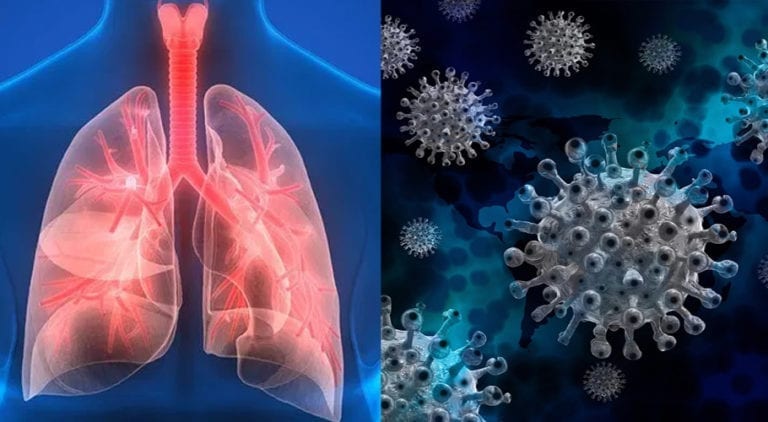‘World Pneumonia Day was first observed in 2009 to raise awareness about and advocate for global action against the acute respiratory disease which claims millions of lives every year.
The theme for World Pneumonia Day 2020 is “Every Breath Counts”. The day will be held during a global pandemic that is dramatically increasing pneumonia deaths from COVID-19 and other causes.
Pneumonia is the single biggest infectious killer of adults and children claiming the lives of 2.5 million people including 672,000 children in 2019. According to American Journal of Physiology, COVID-19 could add 1.9 million to the death toll this year. This could increase ‘all-cause’ pneumonia deaths by more than 75 percent to 4.5 million.
No other infection causes this burden of death. Disruptions to healthcare services are estimated to cause up to an additional 2.3 million child deaths including 35 percent from pneumonia. Many countries across Africa, Asia and Latin America, struggling with the heavy burden of COVID-19 and child pneumonia deaths, will need effective strategies to fight both.
Investments in infection prevention (masks, social distancing, hand washing etc), and improved diagnosis and treatment can save lives during the pandemic. The UN has called on governments and other stakeholders to ensure that the massive effort to control the pandemic contributes to reducing respiratory infections and deaths among both children and adults.
What is pneumonia?
Pneumonia is an infection that inflames the air sacs in one or both lungs. It can range in seriousness from mild to life-threatening. It is most serious for infants and young children, people older than age 65, and people with health problems or weakened immune systems.
The signs and symptoms of pneumonia vary from mild to severe, depending on factors such as the type of germ causing the infection, and your age and overall health. Mild signs and symptoms often are similar to those of a cold or flu, but they last longer.
Signs and symptoms may include:
- Chest pain when you breathe or cough
- Confusion or changes in mental awareness (in adults age 65 and older)
- Cough, which may produce phlegm
- Fatigue
- Fever, sweating and shaking chills
- Lower than normal body temperature
- Nausea, vomiting or diarrhea
- Shortness of breath
When to see a doctor
You should consult a doctor if you have difficulty breathing, chest pain, persistent fever or persistent cough. Pneumonia can quickly become a life-threatening condition for older adults and people with heart failure or chronic lung problems
It is important that people in these high-risk groups see a doctor:
- Adults older than age 65
- Children younger than age 2 with signs and symptoms
- People with an underlying health condition or weakened immune system
- People receiving chemotherapy or taking medication that suppresses the immune system
Risk factors
Pneumonia can affect anyone but two age groups at highest risk – children who are two years old or younger and people who are age 65 or older. You are also at greater risk of pneumonia in a hospital intensive care unit especially on a machine that helps you breathe such as a ventilator.
People suffering from asthma, chronic obstructive pulmonary disease (COPD) or heart disease have higher risk of pneumonia. Smoking also damages the body’s natural defenses against bacteria and viruses that cause pneumonia.
Weak or suppressed immune systems increase risk of pneumonia. People who have HIV/AIDS, organ transplant or receive chemotherapy or long-term steroids are also at risk. Even with treatment, some people with pneumonia may experience complications.
Prevention
Vaccines are available to prevent some types of pneumonia and the flu. Children get vaccinated although doctors recommend a different pneumonia vaccine for children younger than age 2 and for children ages 2 to 5 years who are at particular risk.
Practice good hygiene to protect yourself against respiratory infections that sometimes lead to pneumonia, wash your hands regularly or use an alcohol-based hand sanitizer.
Smoking damages the lung’s natural defenses against respiratory infections. You should keep your immune system strong. Get enough sleep, exercise regularly and eat a healthy diet.
Pneumonia and COVID-19
Since the beginning of the pandemic, studies have shown that pneumonia is a complication of severe COVID-19. Pneumonia not only causes inflammation in either or both lungs but also leads to the build-up of mucus or fluid in them.
This makes breathing even more difficult and worsens the disease further. Worsening of pneumonia can lead to acute respiratory distress syndrome (ARDS), which is a potentially fatal condition as it causes pulmonary fibrosis or the scarring of lung tissue.
Further studies into COVID-19 associated pneumonia revealed that critically-ill COVID-19 patients who need oxygen support through ventilation are at an added risk of developing pneumonia.
The world is now facing the coronavirus and pneumonia pandemic which will increase the burden on healthcare systems and will create even further challenges.


































